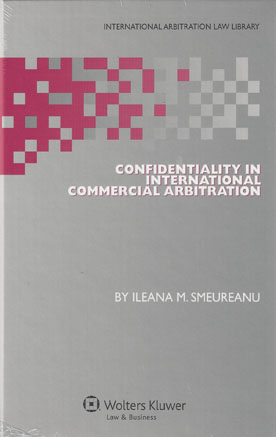
After neutrality and international enforcement, the next most valued feature of international commercial arbitration is confidentiality.
For reasons easy to imagine, businessmen do not want their trade secrets, business plans, strategies, contracts, financial results or any other types of business information to be publicly accessible, as would commonly happen in court proceedings.
Yet the case law of arbitration shows that in practical terms confidentiality is not to be taken for granted – in fact, it has become one of the most undetermined matters in international arbitration. Although ‘the emperor of arbitration may have clothes,’ as one scholar has quipped, his raiments of secrecy can be ‘torn with surprising ease’.
This book deciphers the current degree of confidentiality in international commercial arbitration as reflected by the most important arbitration rules, national laws, other arbitration-related enactments, and practices of arbitral tribunals and domestic courts globally. Drawing on this data and analysis, the author then sets forth criteria to assess the breach of confidentiality in international arbitration and the proper rules for protecting or sanctioning such breaches.
What do we understand by confidentiality in arbitration? What are its limitations? Who is bound to observe it? How can we quantify its breach? In addressing these questions, the book engages such issues as the following:-
In its elucidation of the amount of confidentiality that ‘veils’ each phase of the arbitral process, and its ground-breaking identification of ‘patterns of disclosure’, this book is sure to raise awareness about the various facets and problems posed by confidentiality in arbitration. Although its scholarly contribution to the law of international commercial arbitration cannot be gainsaid, corporate counsel worldwide will quickly prize its more practical value.